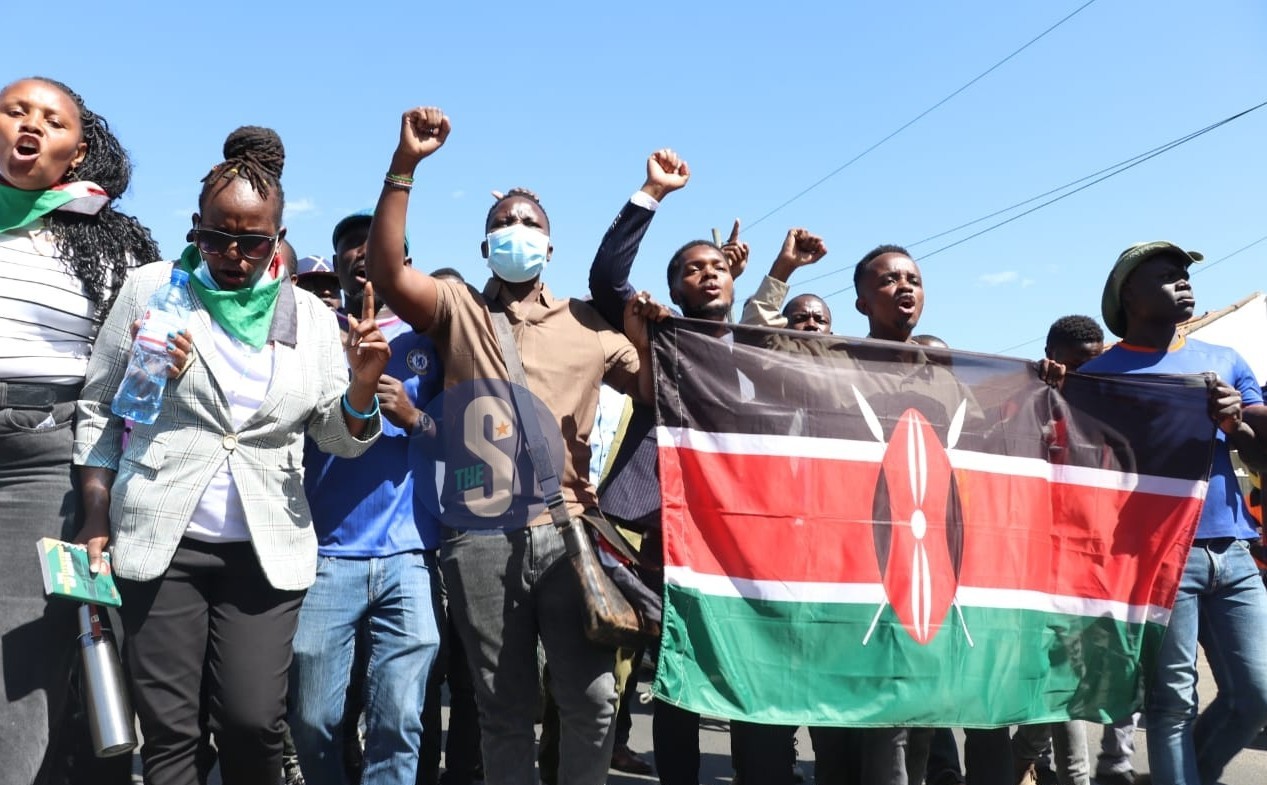
 Activists protest against the death of the late Albert Ojwang as they head to the office of deputy IG Eliud Lagat at Upper Hill, Nairobi on June 10, 2025/LEAH MUKANGAI
Activists protest against the death of the late Albert Ojwang as they head to the office of deputy IG Eliud Lagat at Upper Hill, Nairobi on June 10, 2025/LEAH MUKANGAI
Digital content creators have joined a growing list of voices in condemning the death in a police cell of their colleague Albert Ojwang, terming it a possible attempt to silence the digital creative community through intimidation and fear.
In a statement issued Tuesday by Digital Content Creators Association of Kenya (DCCAK) chairperson Bob Ndolo, the group expressed outrage that Ojwang died while under the custody and supposed protection of law enforcement officers.
The statement followed the release of post-mortem results on Tuesday, which revealed that Ojwang died from blunt force trauma to the head and manual strangulation.
Pathologists ruled out the police narrative that he died from self-inflicted injuries, casting further doubt on official accounts of the incident.
Ojwang, a young digital content creator known for using his platform to engage and critique social and political issues, was arrested on Saturday last week allegedly over material he had published online.
He died while being held at Central police station in Nairobi, under circumstances that remain murky.
“It is unacceptable that a young Kenyan, arrested for exercising his constitutional right to freedom of expression, could meet such a fate while under the custody and supposed protection of law enforcement officers,” Ndolo said.
Describing Ojwang as more than a content creator, DCCAK said he was “a voice of the youth, a symbol of resilience, and an embodiment of the dreams and hopes of a generation that uses digital platforms to inspire change.”
His death, they added, represents a grave violation of human rights and an alarming sign of the dangers faced by content creators in Kenya.
DCCAK called for immediate and independent investigations into the circumstances surrounding Ojwang’s death.
They urged the Independent Policing Oversight Authority (Ipoa), the Kenya National Commission on Human Rights (KNCHR), and the Office of the Director of Public Prosecutions (ODPP) to pursue the matter with urgency.
“We categorically condemn this heinous act and demand that independent and competent investigative authorities move expeditiously to uncover the truth,” Ndolo said, insisting that all those involved — whether by action or negligence — must be held accountable.
Police custody, they emphasised, is meant to be a secure environment where the rights and dignity of detainees are protected.
“The death of Albert Ojwang within such a facility raises grave concerns about abuse of power, dereliction of duty, and a possible attempt to silence the digital creative community through intimidation and fear.”
Ojwang’s death has sparked outrage among Kenyans online, with the hashtag #JusticeForAlbert trending across multiple social media platforms.
Civil society groups, legal bodies, and fellow creatives have echoed DCCAK’s demands for accountability and transparency in the investigation.
As Kenya continues to grapple with issues of police accountability, the tragic death of Albert Ojwang has become a stark reminder of the vulnerability of citizens — especially those using digital spaces to challenge the status quo.
Activists on Tuesday marched in protest of Ojwang's death as they headed to the office of deputy IG Eliud Lagat in Upper Hill, Nairobi.
















